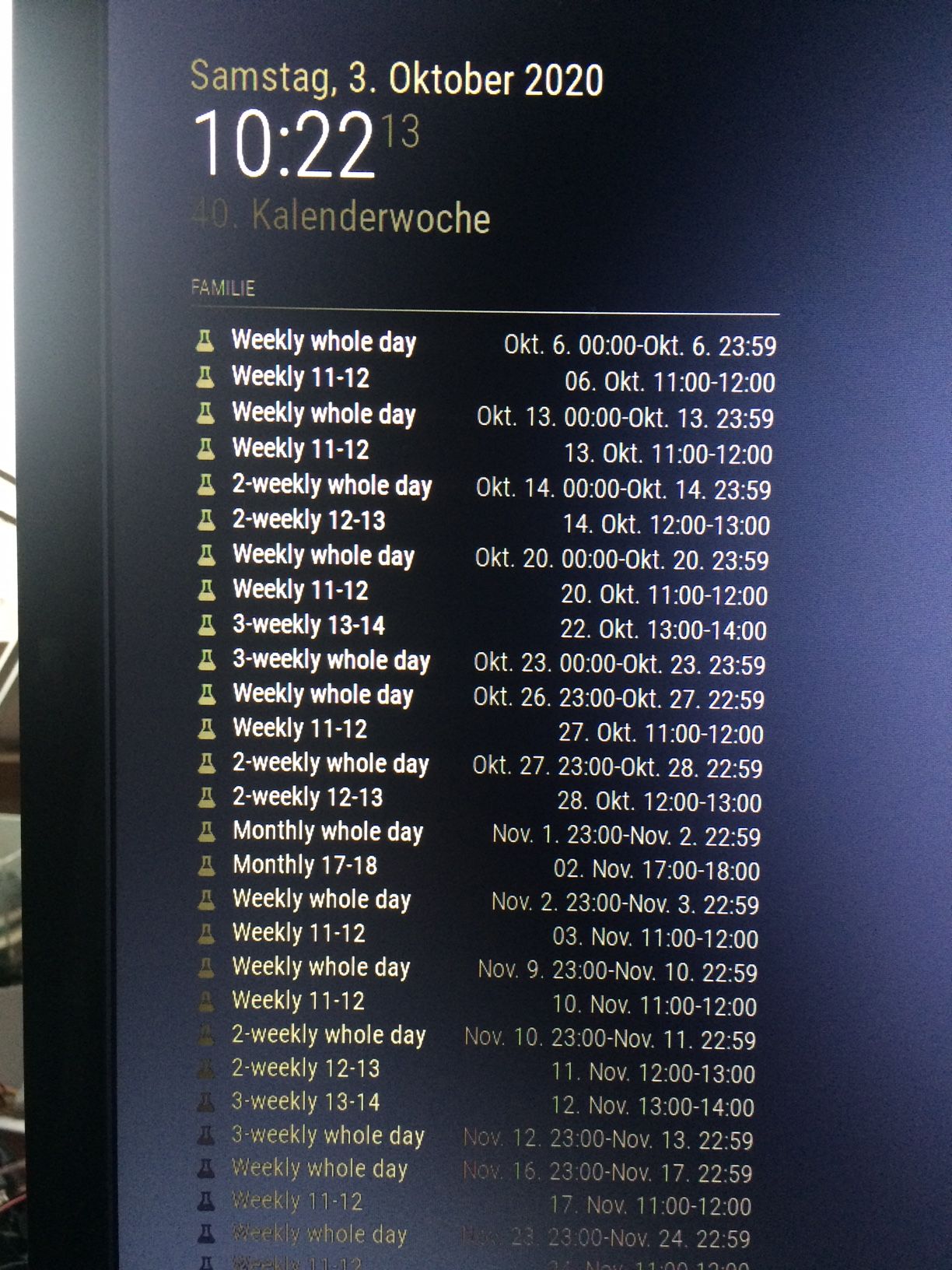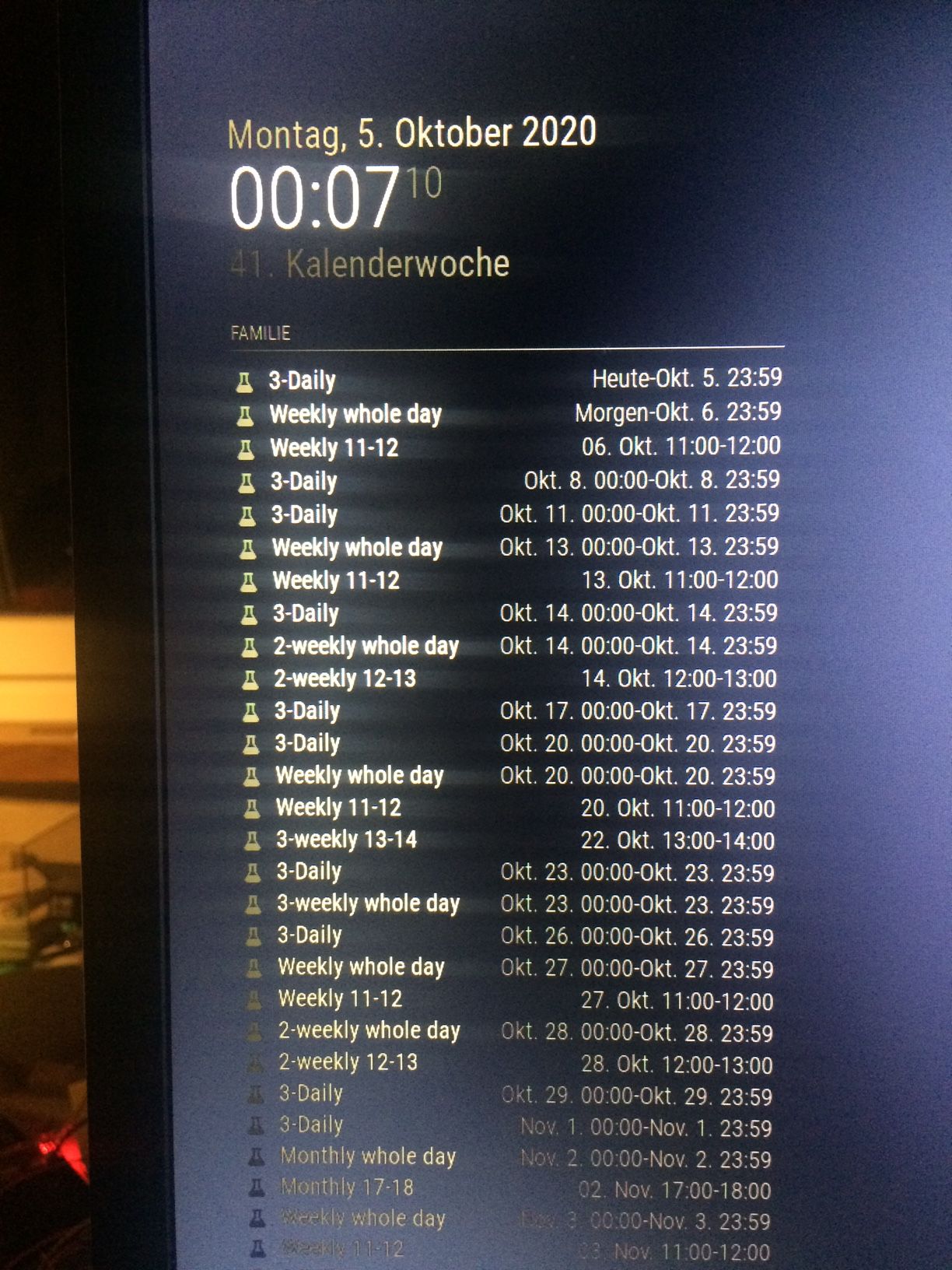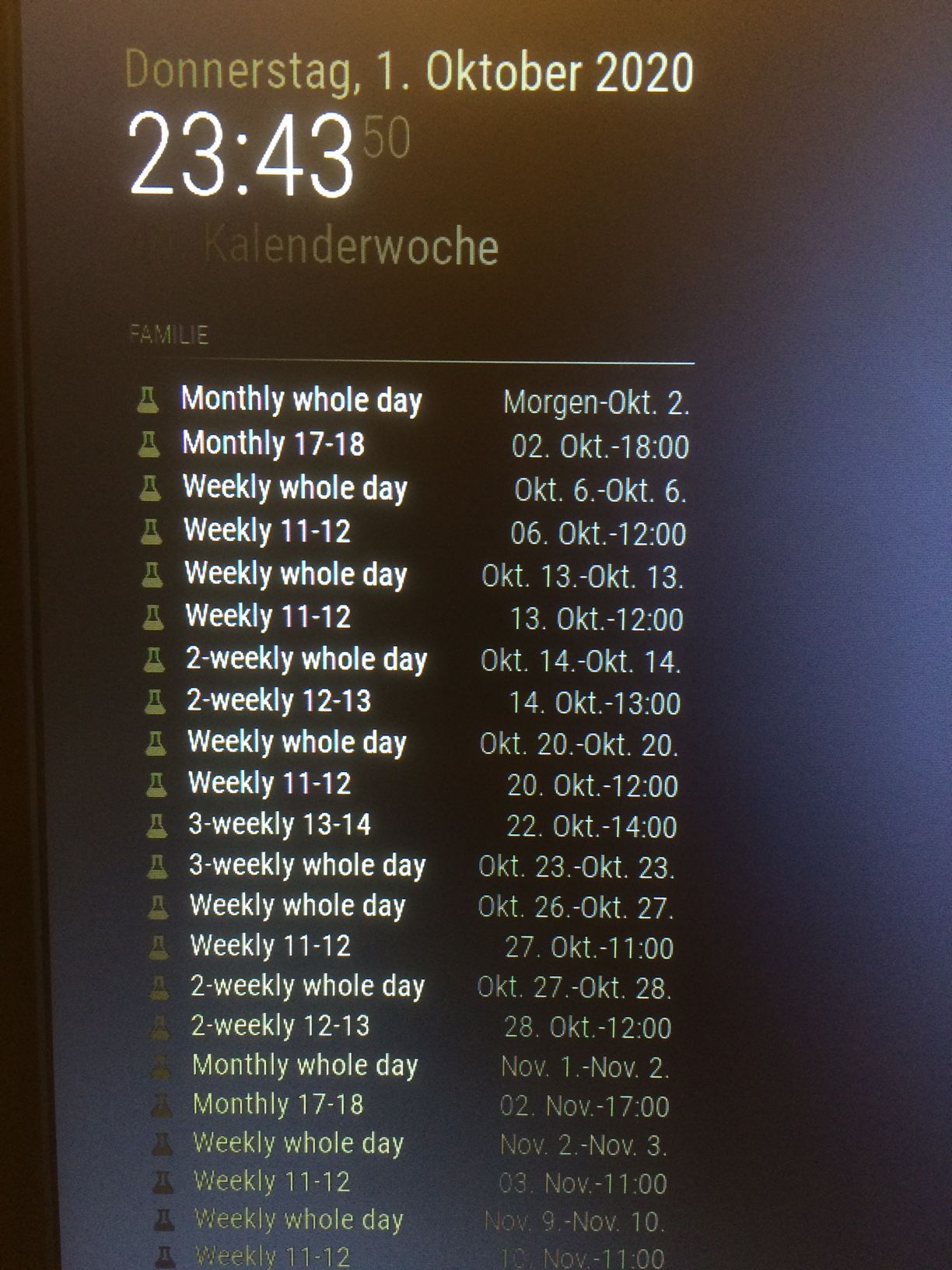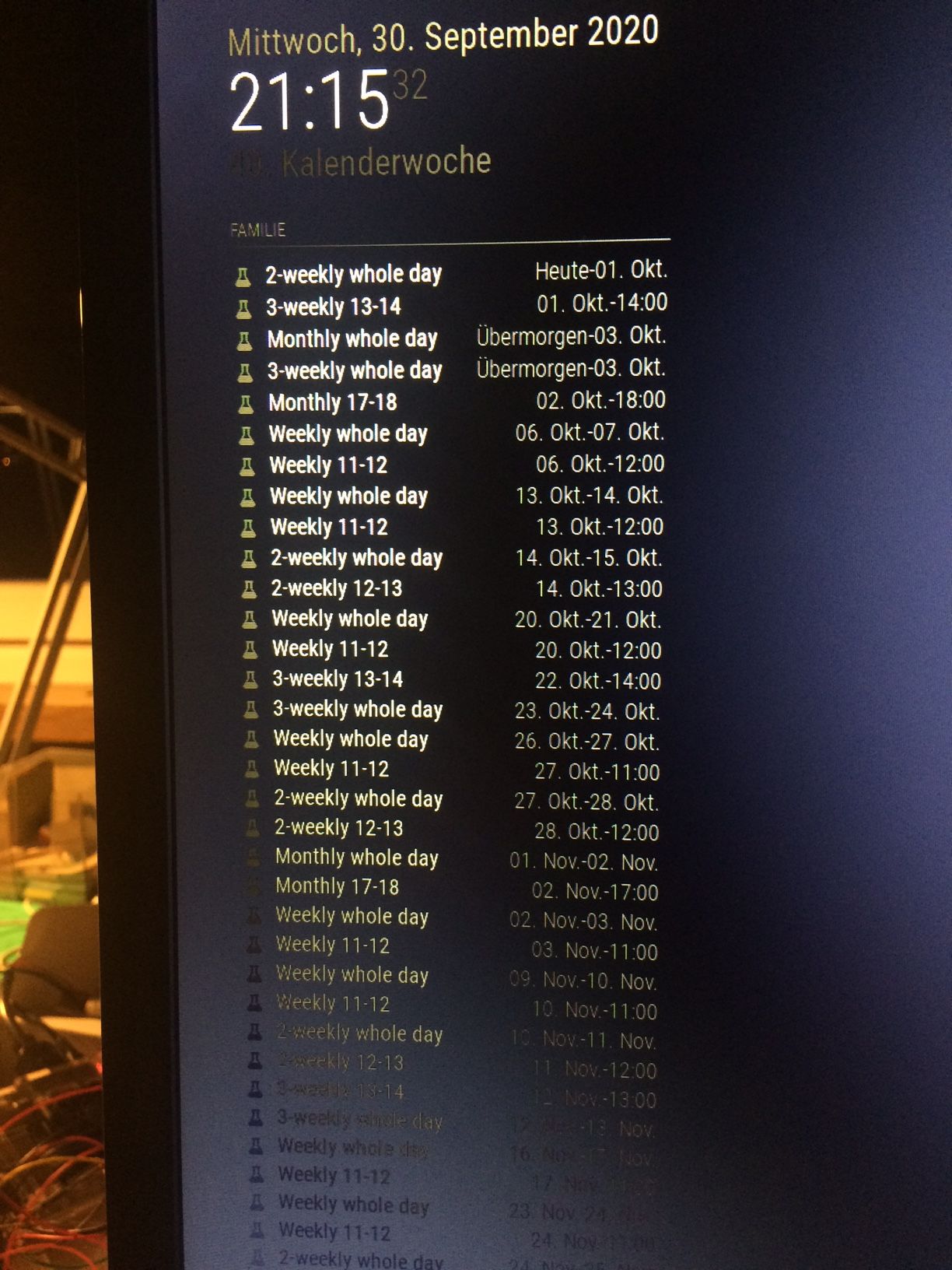@sdetweil
3-weekly whole day now shows Okt 23, but it should be Okt 22
As I have seen in the calendar file, switching from DST to STD time is correctly defined for last Sunday in October, that is 25th of October. So this should not influence an event on 22nd of October…
Regarding events after switching from DST to STD time, I don’t have a clue, as I am not a dev, just a little experienced in testing…
I tried to understand the calendar file. As far as I have seen, you have only the date for whole day events (without any time):
BEGIN:VEVENT
CREATED:20201001T205859Z
DTEND;VALUE=DATE:20201023
DTSTAMP:20201001T205900Z
DTSTART;VALUE=DATE:20201022
LAST-MODIFIED:20201001T205859Z
RRULE:FREQ=WEEKLY;INTERVAL=3;BYDAY=TH
SEQUENCE:1
SUMMARY:3-weekly whole day
UID:D718FE41-FF1B-43F6-9442-E9E43A41CCF0
URL;VALUE=URI:
END:VEVENT
In this case DTSTART is 20201022 and DTEND is 20201023.
For whole day events, can’t you simply set:
‘Begin’ to value of DTSTART 00:00 and
‘End’ to value of DTEND - 1day 23:59? (just as ical most probably uses 24:00 and that’s one day later)
Maybe it’s not as simple as I assume, otherwise you would have tried that already…
As we currently have TZOFFSET+0200 and switch to TZOFFSET+0100, I would rather expect that we see current events (planned after 25th Oct) on the monitor 1 hour too late.
So that’s why I currently would rather expect:
Oct 27th 01:00 - Oct 28th 00:59 for weekly whole day after switching to STD time instead of
Oct 26th 23:00 - Oct 27th 22:59
But as I mentioned before, maybe everything is much more complicated than I ever can imagine…




